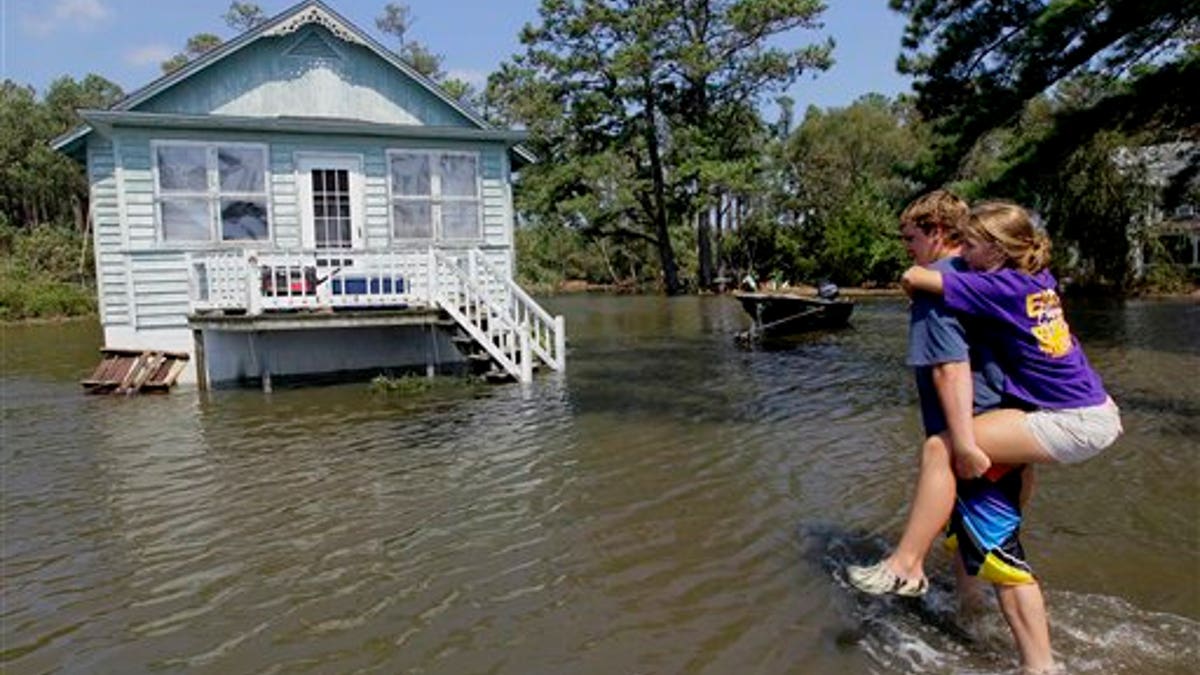
Aug. 28: Residents of Stumpy Point, N.C. make their way into their flooded home following the effects of Hurricane Irene. Flood waters rose all across New Jersey on Sunday, closing roads from side streets to major highways as Hurricane Irene weakened and moved on, leaving 600,000 homes and businesses without power. (AP)
MANTEO, N.C. – Preliminary estimates show that Hurricane Irene destroyed more than 1,100 homes in North Carolina and cost the state at least $70 million in damage, including severing the only highway linking Hatteras Island to the mainland, Gov. Beverly Perdue said Tuesday.
"This has become an expensive hurricane for North Carolina. So, though others are saying she was a Category 1, for our state, and for our coastline, the magnitude of the rain, the intensity of the wind and the duration of the hit for our coast is significant," she said.
Perdue spoke at a news conference after surveying hurricane damage with U.S. Homeland Security Secretary Janet Napolitano and U.S. Agriculture Secretary Tom Vilsack, former governors who both promised to quickly act on requests for help from the state. Perdue cautioned that the damage estimate is very preliminary and based only on what officials had seen so far on Tuesday. Officials said the first counties to be considered for federal disaster help will be Dare, Craven, Beaufort, Tyrrell, Carteret, Pamlico and Hyde.
While acknowledging the scope of the damage, Perdue also said 300 miles of the state's coastline will remain open for visitors as Labor Day approaches.
"Many of our beaches are open and will continue to open for the holiday weekend and we would urge folks to come to North Carolina," the Democrat said.
Napolitano promised to quickly act on requests for disaster declarations filed by state authorities. Federal officials expect to have the necessary damage assessments from the state by Tuesday. Napolitano noted that much of the damage across North Carolina has been from flooding, not wind.
"Once we get them, we will move things very quickly," she said.
During his tour, Vilsack said he saw damage to the state's tobacco, corn, cotton and some soybean crops. Vilsack urged farmers to file crop damage claims with their insurers, and said federal assistance may cover additional losses and damage to rural infrastructure.
"I've not seen the kind of flooding and damage to crops that I saw briefly today," Vilsack said. "And if this is representative of what North Carolina has suffered, it's a fairly significant blow to North Carolina agriculture."








































